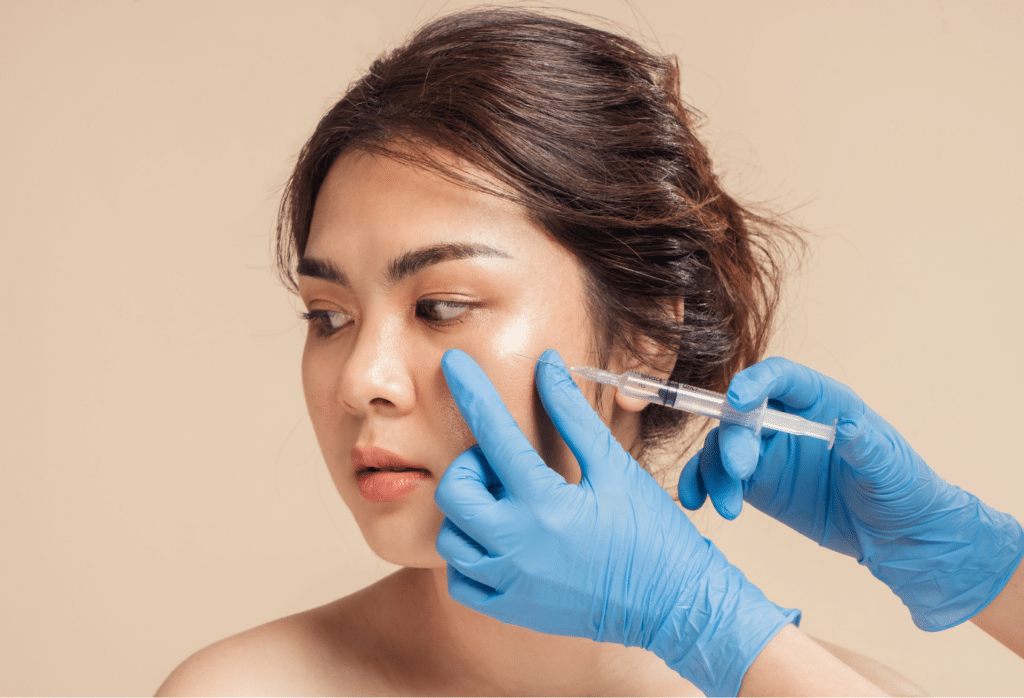Young women who regularly engage with social media are more likely to consider cosmetic surgery, a new study from the University of South Australia has found.
Researchers surveyed 238 Australian women aged 18-29 on their social media use, self-compassion, and attitudes towards cosmetic surgery, finding a link between higher social media engagement and excessive self-judgement.
The study found 16 per cent of respondents of women had already had some form of cosmetic surgery done, while more than half said they would consider it in the future.
The research, which confirms several recent adjacent studies — highlights the concerning impacts of social media on young women’s body perceptions and their attitudes to cosmetic surgery.
According to Lauren Conboy, a researcher and PhD candidate at the University of South Australia, the prevalence of body dissatisfaction among young women has long been a widespread issue, with social media sites such as Instagram and Facebook selling “unattainable” beauty standards.
Conboy said that the link between social media use and women getting cosmetic surgery is “not surprising.”
“Our study found that cosmetic procedures were well accepted among young women, and that a higher use of social media correlated with a higher acceptance of cosmetic surgery,” she said.
“Specifically, we found that young women who over-identify with personal attributes that they believe are not attractive, are more likely to feel bad about themselves and despite recognising this, can’t seem to break away from these negative thoughts. Over-identification was the most important predictor of positive attitudes towards cosmetic surgery.”
Conboy hopes that by investigating how self-compassion might alter women’s relationship with themselves, strategies for promoting positive psychosocial wellbeing can be developed.
“Self-compassion is about accepting flaws with neutrality,” she explained. “When we have positive self-compassion, we are kinder and more understanding towards ourselves; but when we have negative self-compassion we tend to overestimate and criticise our flaws.”
Conboy’s research colleague, Dr John Mingoia, said he wants to see less young women strive for unrealistic and potentially harmful body images as portrayed on social media.
“Research tells us that even after women get a cosmetic procedure, less than 40 per cent are satisfied with their bodies post-surgery,” Dr Mingoia said.
“Social networking sites are clearly a pervasive mode of comparison and body dissatisfaction for young women; however, due to their extreme popularity, they present an opportune platform to disseminate messages that may counter potentially harmful appearance-related content.”
Dr Mingoia also wants to see clinicians assess the psychosocial safety of young women who are possibly influenced by media representations of beauty before they go ‘under the knife’.
“If young women continue to access cosmetic surgery without addressing underlying self-compassion concerns, they may never feel content in their own body,” he said.
The use of cosmetic surgery has been rising globally for decades. Between 2010 to 2018, cosmetic procedures in Australia almost doubled from 117,000 to more than 225,000.
Current figures suggest more than $1 billion is spent every year in Australia on more than 500,000 procedures.
The influence of social media on an individual’s decision to undergo cosmetic alterations has been extensively charted over the past few years — a 2019 study from Saudi Arabia found that “viewing cosmetic surgery–related material on social media, spending longer hours on social media platforms, and having negative self-views when viewing social media are associated with an increased likelihood of considering undergoing cosmetic procedures in the future.”
A similar study undertaken in the UK found that the higher the number of hours participants used social media, the more likely they were to consider cosmetic surgery. They also found that the less satisfied participants are with their appearance, the likelier they were to consider cosmetic surgery.
A recent study by the Australasian College of Cosmetic Surgery and Medicine (ACCSM) found that up to seven million Australians (almost 40 per cent of the adult population) would consider cosmetic surgery in the next 10 years — with Millennials aged between 23 and 42 undergoing a greater rate of cosmetic surgery than any other generation.
A 2020 global investigation by the International Society of Aesthetic Plastic Surgery found that females aged 19–34 years received the most cosmetic procedures across most categories.
In July this year, when the Australian Medical Board launched new safeguards to ensure patients could see which practitioners have AMC accreditation in cosmetic surgery, ACCSM President Dr Anoop Rastogi noted that the ‘pressure for perfection’ created by social media was likely contributing to an idealistic version of what we should look like, even if patients are happy with their surgical results.
“[ACCSM] advocates for awareness and caution among practitioners, to guide and advise their patients towards good decision-making,” Dr Rastogi said.


